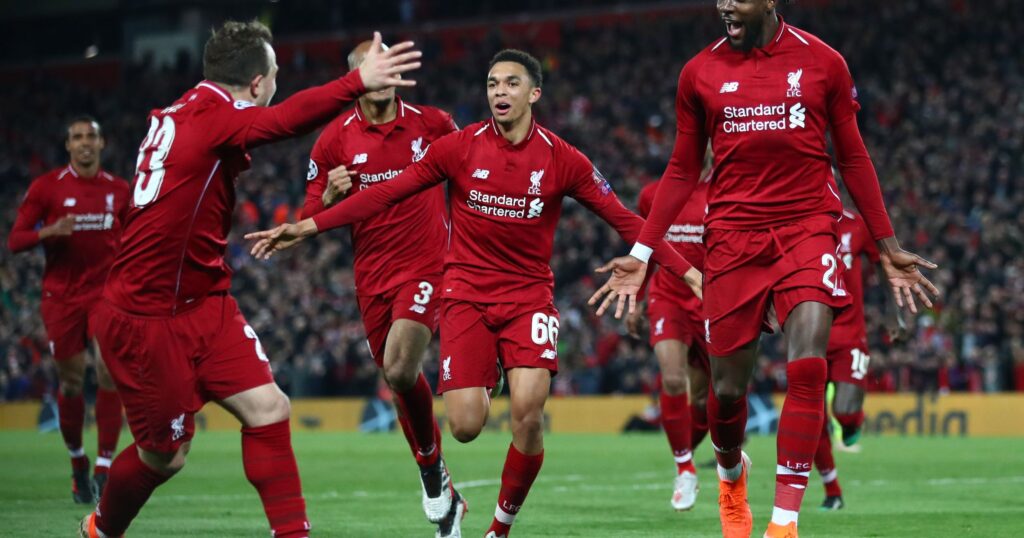Real Madrid, the famed Spanish football club, has a rich history of demonstrating remarkable comebacks in the UEFA Champions League. Their penchant for spectacular recoveries was prominently on display in the semi-finals of the previous season against Bayern Munich. In that nerve-wracking tie, Real Madrid’s striker Joselu scored goals in the 88th and 91st minutes, clinching a stunning aggregate victory. Eclipsing even that drama, Madrid achieved an equally astonishing comeback in 2022. They faced Manchester City in a high-stakes matchup where Rodrygo found the back of the net twice during injury time, paving the way for Vinicius Jr. to seal the tie from the penalty spot.
Despite their historical prowess in the competition, Real Madrid finds itself in unique territory this season. Historically, no team has managed to reverse a three-goal deficit in a UEFA Champions League tie since the tournament’s reformatting in 1992. As per the data compiled by Opta, in a total of 48 instances where a team entered a second leg with a three-goal lead, only four teams have managed to overturn that margin, reflecting the challenging nature of championship football.
These rare instances of reversal in Champions League history are indeed noteworthy. One of the most memorable moments occurred during the 2003/04 season when Deportivo La Coruña stunned AC Milan in a quarter-final matchup. The first leg at San Siro concluded with a dominant 4-1 victory for Milan, featuring footballing legends such as Paolo Maldini and Andrea Pirlo. However, the return leg in La Coruña saw Deportivo deliver a stunning performance, scoring four goals without reply and achieving a remarkable 5-4 aggregate triumph.
Fast forward to the 2016/17 season, another iconic comeback unfolded when Barcelona faced Paris St-Germain in the Round of 16. The first leg witnessed a heavily favored PSG take a commanding 4-0 lead at the Parc des Princes. However, the return leg at Camp Nou would become a historical reference for dramatic comebacks, now famously termed “La Remontada.” Barcelona electrified their home crowd with a resounding 6-1 victory, culminating in a 6-5 aggregate win. The standout performer was Neymar, who scored critical goals and assisted the decisive last-minute goal scored by Sergi Roberto, prompting jubilation among Barcelona supporters.
The subsequent season saw Barcelona on the receiving end of a historic comeback of their own, which served as a bitter reminder of the fragility of football’s dramatic narratives. In the quarter-finals of the 2017/18 Champions League campaign, Barcelona had previously thrashed AS Roma 4-1 in the first leg at Camp Nou. However, the second leg in Rome turned into a nightmare for the Catalans. A stunning 3-0 victory for Roma, characterized by a decisive header from Kostas Manolas—who ironically had scored an own goal in the first leg—saw the Italian side advance on the away goals rule, a concept that has unfortunately since been abolished from European competition.
Finally, in the following season, the drama continued when Liverpool faced Barcelona in the semi-finals of the 2018-19 Champions League. Barcelona entered the second leg with a substantial 3-0 advantage from the first leg. Yet at Anfield, Liverpool orchestrated another incredible turnaround, winning 4-0, which included a breathtaking set-piece goal from Trent Alexander-Arnold that caught the Catalan defense unaware, allowing Divock Origi to score the decisive goal and send Liverpool through to the final.
These matches reflect the beauty and unpredictability of football, showcasing how no lead is ever truly safe and how, at any moment in the legendary UEFA Champions League, the impossible can become reality. With each season, fans remain eager to see if history can repeat itself or if a new chapter of football lore will be written.









